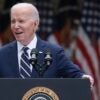China and Japan had a diplomatic disagreement this past week. Of the many facets to this dispute, at least one has implications for the U.S.: during the diplomatic standoff, Chinese shipments of rare earth minerals to Japan were interrupted. The U.S. is in a much stronger position than Japan but this incident is a pointed reminder to avoid trade dependence on strategic competitors in security-related products.
The interruption by China was informal and intended from the start to be temporary. It caused no real economic harm to Japan and might never have, since Japanese firms could simply have bought rare earths from those companies still receiving Chinese deliveries. However, it was an effective message.
Rare earths are not rare, with large deposits present in the U.S., Australia, and elsewhere. But a combination of events means China now dominates actual global production. And rare earths are important, as they are used in production of advanced weapons and environmental equipment. China reminded Japan that it was risking more than an exchange of nasty letters.
Could the same thing happen to the U.S.? Could worse happen, given that U.S.-China confrontations could be for much higher stakes than a detained trawler captain? Probably not, but the situation is not entirely clear.
First, the idea that China has leverage due to its holdings of American bonds is false. The PRC depends on our bond market far more than we depend on their bond purchases.
In trade, an examination of available trade data shows no apparent vulnerability of the U.S. to the PRC. Imports from China seem to be concentrated in areas – textiles, toys, etc. – that have no strategic value.
There is a big qualifier, though: American trade data aren’t good enough. Rare earths and other items of concern don’t show up clearly as areas of dependence because the data aren’t sufficiently detailed.
The China-Japan dispute is a reminder than the U.S. government needs to pay attention to trade dependence. We need good information, and then we need to mitigate any dependence on unreliable partners for important goods and assets. For example, the Department of Defense is upgrading its stockpile of strategic minerals like rare earths, but the process began late because awareness of this issue was low.
The U.S. is accustomed to having the economic and financial leverage in a crisis. China’s size as a trade partner and obvious willingness to exploit that size means we have to take more care not to leave ourselves vulnerable.































